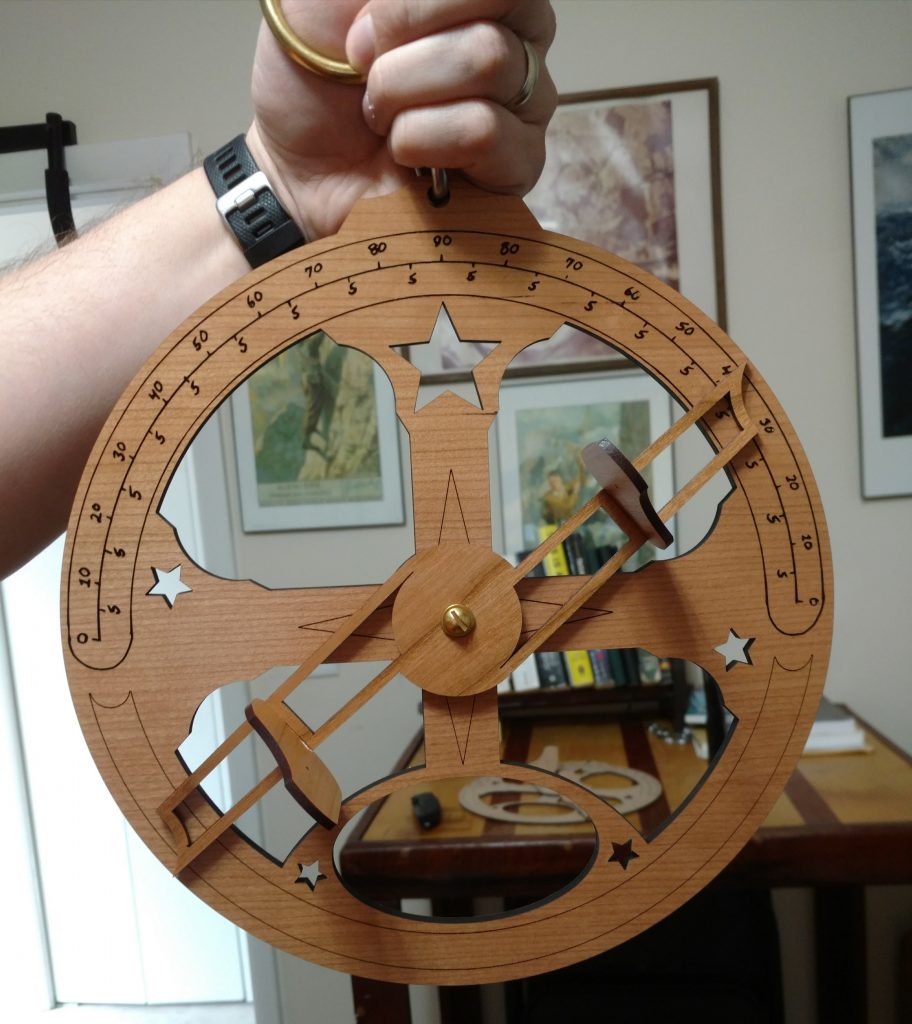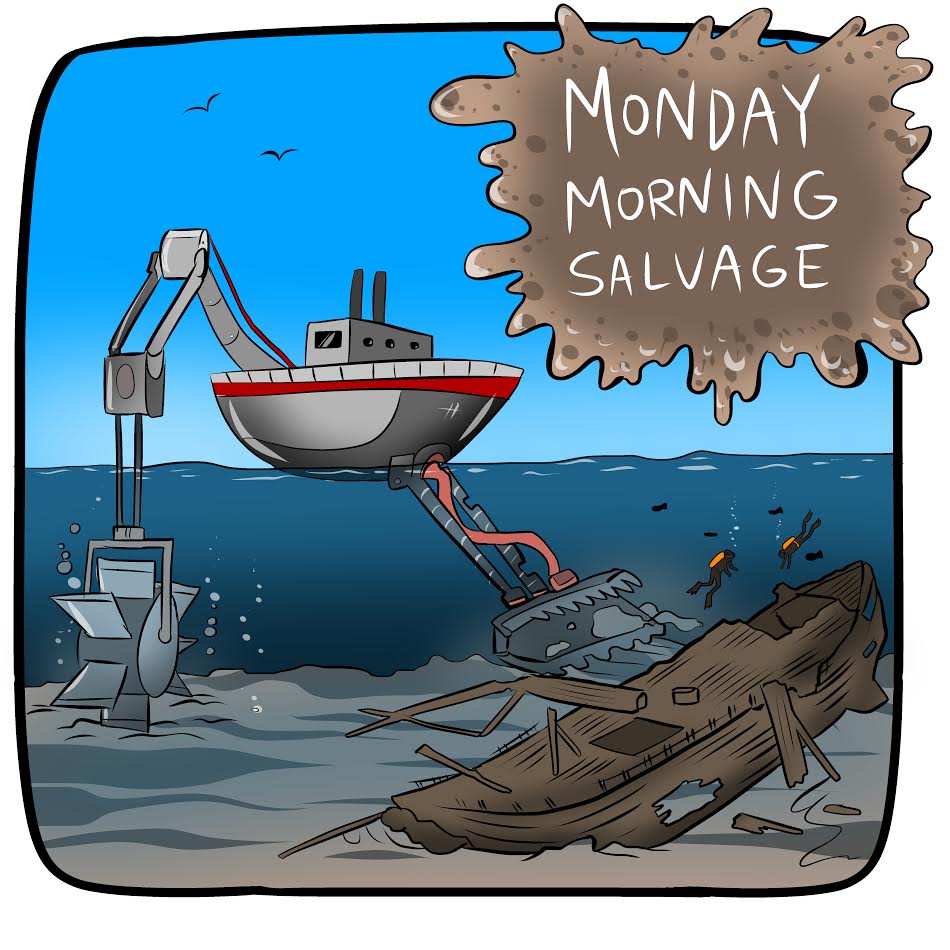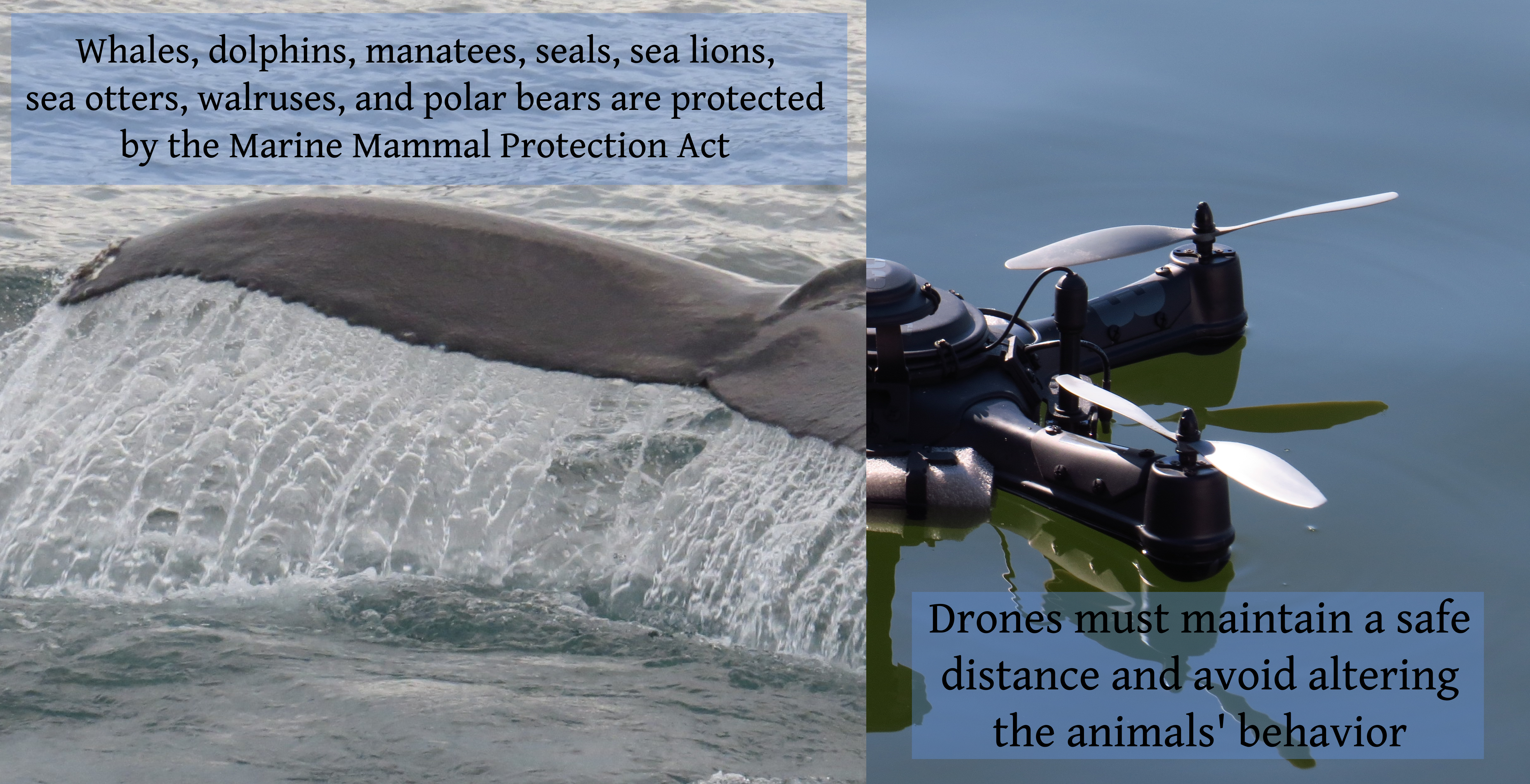
I have a bit of a soft spot for classic navigational instruments. In an age where more people interact with maps than ever before and yet spend much less time plotting their own course, being able to look up at the sky and discern your place in the world is a powerful skill. Unfortunately, it’s not exactly easy to make your own navigational instruments. Unless, of course, you have your own laser cutter.
I recently got a Glowforge, so honestly, you should have seen this coming.
Say hello to the Mariner’s Astrolabe!
Read More “Try your hand at celestial navigation with an open-source, Glowforge-ready astrolabe!” »



